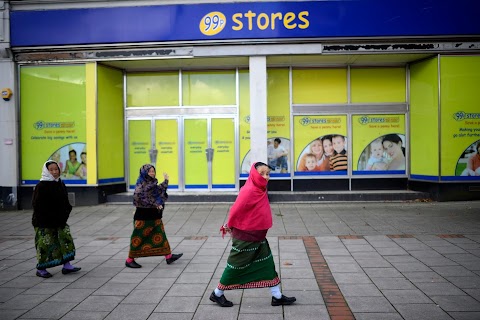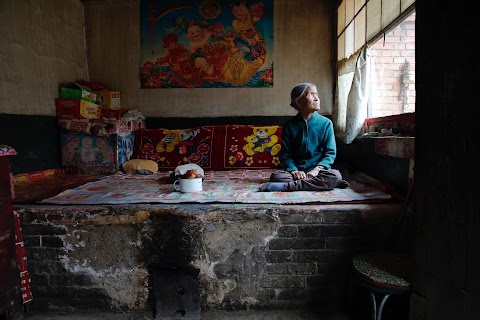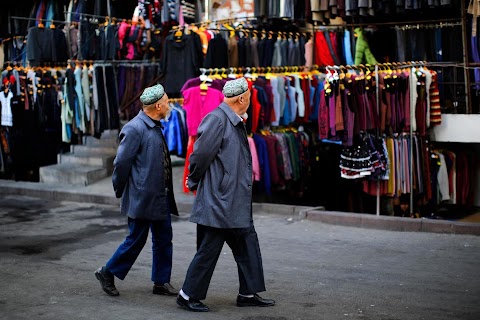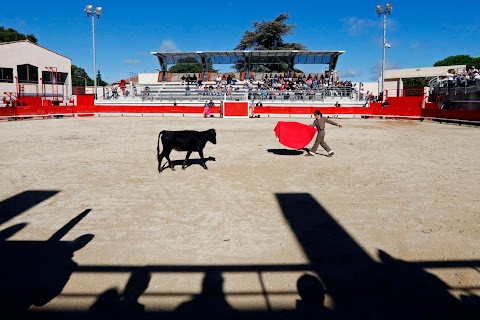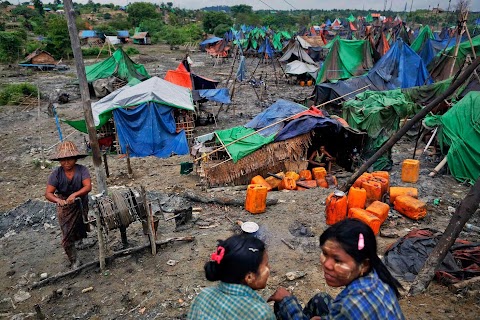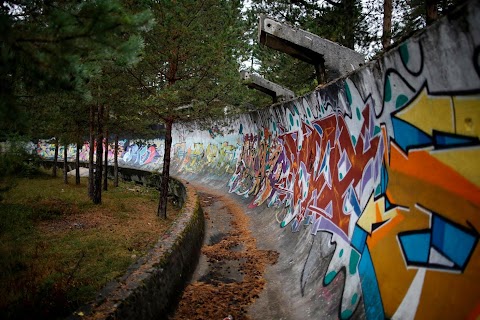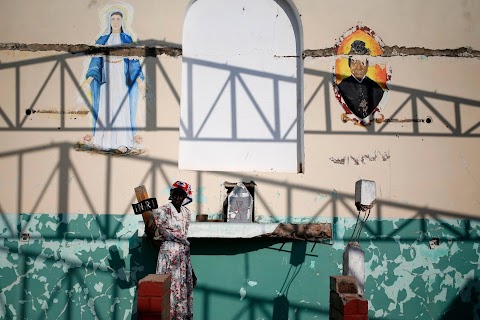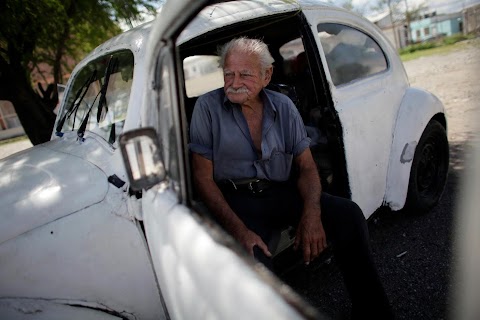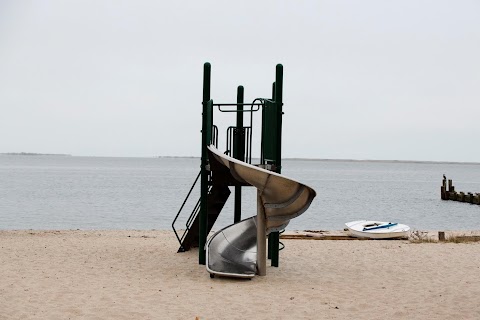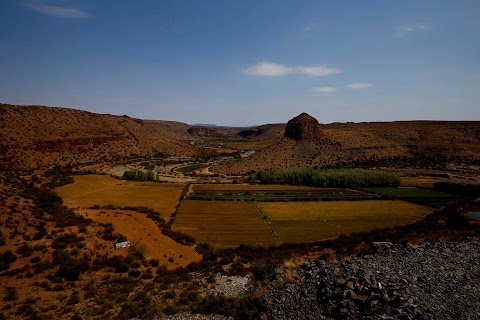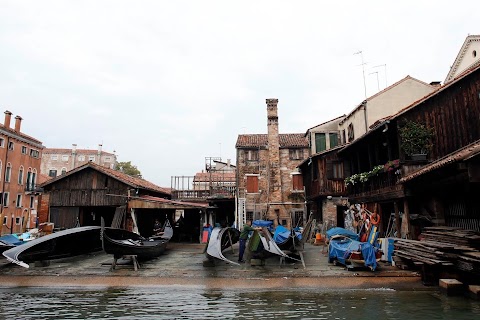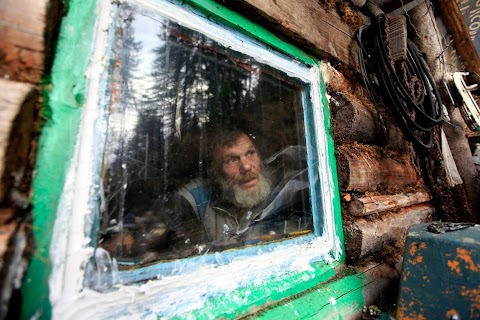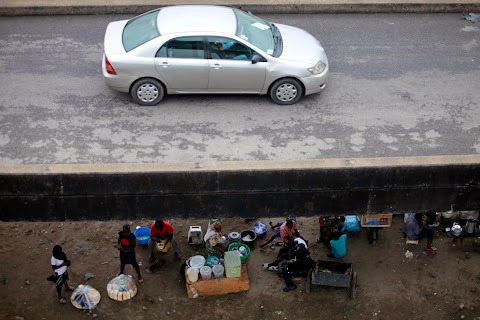
Struggles of a megacity
 Akintunde Akinleye
Akintunde Akinleye
A car speeds past a group of traders sitting beneath a bridge in Lagos, a sprawling megacity of 15-21 million people on Nigeria's coast.
If it were a country, Lagos’ GDP would make it Africa's seventh biggest economy. But the rapidly growing city struggles with deprivation, crime and chaotic infrastructure – issues that its government is grappling with.

Lagos’ governor Babtunde Fashola is trying to turn the tumultuous city into a glitzy business hub, and his success will rest on initiatives like this light rail line - a $2.5 billion project that has been underway for three years.
But construction has involved massive and controversial slum clearance, and is behind schedule because there is barely a stretch of land on which someone isn't living or trading.
Thousands of illegal settlements erected by slum dwellers have been destroyed this year. No one has been compensated, because they were never supposed to be there to begin with.

Travel is a huge problem in Lagos, which has seen massive population growth and draws an estimated 4,000 economic migrants each day.
The transport authority says there are 9 million road trips per day in the city, where trademark yellow buses overtake, undertake and force their way down impossibly narrow side streets. Some residents get up at 4.30 a.m. to make the office by nine.
Yet things are improving; highways were widened and police stationed at bottlenecks. New ferry services now beat traffic by crossing the lagoon in a state one fifth of which is water.

As the city grows, it still struggles with housing for its residents, who include some 100,000 people living here in the Makoko slum, in houses on stilts with no sanitation.
There is no shortage of development projects for the rich. Moss-dusted colonial-era houses in the city’s leafy Ikoyi district are becoming rare as they get torn down and swapped for luxury flats.
But critics accuse governor Fashola of fixing the city for besuited business types, yet being slow on things like low-cost housing to help those sleeping under bridges or on rubbish tips.
Fashola himself resents the notion he has neglected the poor. He points to projects like massive mains water provision, which will when finished provide 10-20 litres a day to Lagosians, even if the city swells to 35 million, he says.
Slideshow

A man carries a broken fan as he walks through an automobile workshop in the Orile-Iganmu district of Lagos.

Trucks stand parked, overlooking the city's business district.

People queue up in the Obalende district of Lagos as they wait to board a bus.

A man selling sunglasses at a motor park waits for his customers to arrive.

A labourer rests on wheelbarrows in the Abule Egba district of the city.

Vendors in a motorpark hawk their goods.

A banner advertising a school hangs from an electricity pole in Lagos’ Agege district.

A car loaded with household goods drives over a bridge in Orile-Iganmu.

Labourers rest with their wheelbarrows on a bridge in Obalende.

A warning sign stands on Lagos' partially constructed light rail track, overlooking a slum.

The rail track stretches through the Orile-Iganmu district.

Men stand outside a station under construction on the track.
